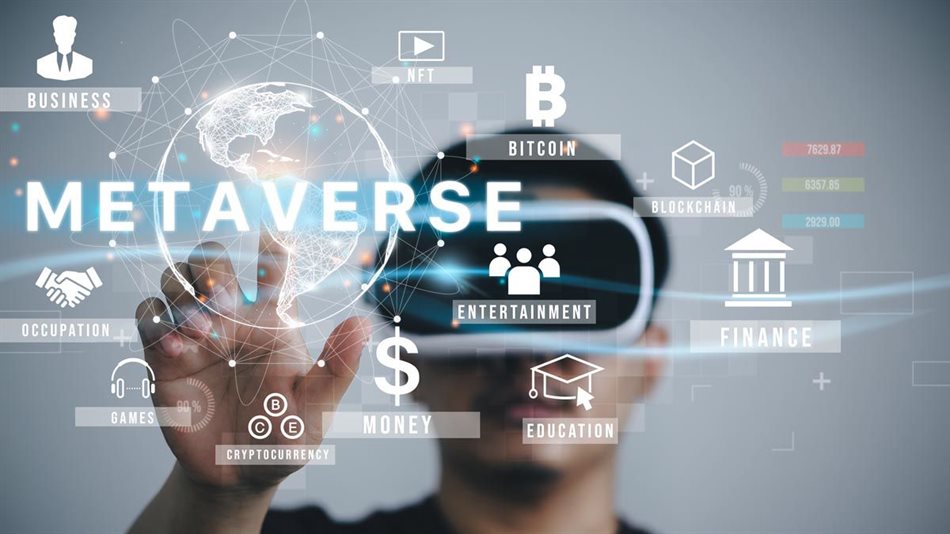The metaverse is a digital world that co-exists with our physical world having similar features and attributes but no physical manifestation. It is a place to live a second life, socialising and transacting through an avatar of our own creation.
Like our own universe, different worlds exist in the metaverse. Each “world” is created, managed, and branded by a different corporate owner. An example of one of these virtual worlds Roblox, has 220 million users and Africa also has its first virtual world, Ubuntuland, where MTN purchased 144 plots for an undisclosed sum helping to get the party started.

Image: Adobe Stock
The metaverse and all its trimmings
These virtual worlds are leading the convergence of physical and virtual lives with activities such as games, concerts, art exhibitions and fashion shows. One key aspect that has had a significant effect on the metaverse is the rise of crypto bringing commercial viability and the birth of the NFT2, a new digital asset class.
This has created an environment in the metaverse that goes beyond chatting and hanging out. You can now go to concerts like one hosted on the Fortnite platform, featuring Travis Scott an American rap artist. The event drew over 12.3 million concurrent guests setting a new metaverse concert attendance record in the process.
You can also buy accessories for your curated avatar with items advertised on digital outdoor hoardings. When it comes to these accessories, imagine the possibility of your favourite real world fashion retailer showing up with a virtual 3D store from where you can buy real merchandise delivered later to your real-world home. This changes everything and companies like Gucci, Calvin Klein and Nike are leading the way in this space.
There is also a place for business in the metaverse. Bill Gates sees the metaverse as a benefactor to business efficiency, improving meetings, presentations, conferences and other engagements. Microsoft too has already launched Mesh for Microsoft Teams under the enigmatic banner “Here can be Anywhere”.

Image: Depositphotos
What about advertising?
With real world commercial investment in a metaverse comes advertising and the search for branded interaction opportunities. The world’s leading agencies are already strategising how this might be developed and what the advertisement product might look like in a metaverse.
Tom Hostler, head of brand experience at Publicis Poke says, “They (brands) have to be there in a different way than display advertising around content. They need to be much more participative, collaborative and understand the culture. Whether that will take the form of what we currently think of as an advert is hard to say. I think it will be closer to brand activations and experiences.”3
It is likely that brand communication in the metaverse will lean strongly towards incentivised immersion drawing on a gaming heritage. Recently Chiptole in the USA opened a metaverse store on Roblox, encouraging visitation with a coupon for a free burrito redeemable in a real physical outlet but only after completing an in-game quest.
Notwithstanding a lack of current certainty on the ideal metaverse advertisement, a new genre of metaverse specific agencies are springing up much like specialist social media agencies a while back. Don’t think only creative, there are already exclusive metaverse media agencies creating the infrastructure to extend virtual brand presence, build avatar brand advocacy and create activations.
It is suggested that global gaming and metaverse ad spend will almost treble from $47bn in 2021 to $131bn in 2025 according to Statistica. Ocean Outdoor, a UK media specialist, made headlines recently selling three digital billboards to metaverse ‘landowners’ for over $100 000. Working with Admix, they aim to offer advertisers a seamless presence across physical and digital worlds with consistent real-time communication.
Going further, the question of ad verification and audience measurement is getting early attention in the virtual environment. Companies like Bidstack and Anzu.io that placed adverts in games and metaverses are already working with Nielsen and Comscore to bring viewability verification tools to the virtual space.
As the metaverse is developing, much work still needs to be done and the true big breakthroughs may still lie ahead. However, the optimists envision a strong growth trajectory for the metaverse, pointing out features and benefits that will forever change humankind.
References:
1. https://financesonline.com/number-of-gamers-worldwide/
2. Non-Fungible Token
3. The Drum: https://www.thedrum.com/news/2022/01/21/what-s-the-role-ad-agency-the-metaverse
4. The Verge: https://www.theverge.com/2021/12/22/22849717/elon-musk-metaverse-web3-more-marketing-than-reality
